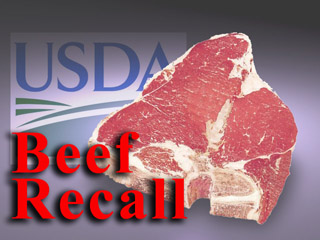LOS ANGELES
A Downey man who falsely certified that contaminated beef was free of E. coli has been sentenced to a year of home detention and required to pay $307,695.90 in restitution.
Jim Johnson, 67, had pleaded guilty to falsifying a Certificate of Analysis in United States District Court last November.
In its sentencing papers, the government stated that the USDA identified a total of approximately 111 Certificates of Analysis falsified by Johnson between March 30, 2009, and January 12, 2010. Other than the meat that tested positive for E. coli, none of the other meat related to those Certificates of Analysis was ever sent to the laboratory for testing.
Upon learning of the false Certificate of Analysis, U.S. Department of Agriculture Food Safety Inspection Service initially recalled approximately 864,000 pounds of beef products. The recall was expanded less than a month later to include approximately 4.9 million pounds of additional beef and veal products from Huntington due to the falsified Certificates of Analysis and other violations.
Johnson worked as a consultant for Huntington Meat Packing Company, a former meat processing and distribution company located in Montebello, California. The company had a plan that addressed, among other things, how the company would test its beef for E. coli. Among Huntington’s customers were El Primo Foods and Foster Farms.
Several years ago, Johnson knowingly and willfully provided the USDA with a fake Certificate of Analysis which falsely stated that a beef sample from the company had tested negative for E. coli.
In fact, when Johnson made the false document, he knew that preliminary laboratory results indicated that the beef tested positive for E. coli. Further laboratory testing confirmed that the beef was, indeed, contaminated with the pathogen, according to officials.
“The defendant’s crime endangered consumers throughout the country,” said U.S. Attorney Eileen M. Decker. “The public is dependent upon inspections and testing for food safety, and this case illustrates the immense ramifications that one failure can have on consumers.”

